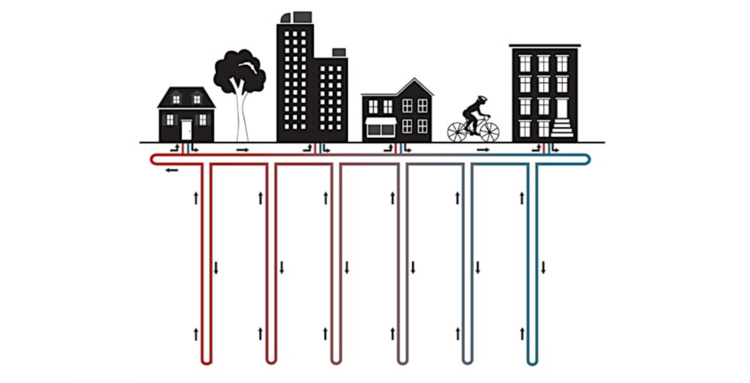
Events
Geothermal Energy Networks: Transforming our Thermal Energy System

HEET is collaborating with the MIT ESI, Open Learning, and Sloan School of Management to offer a two-day course, titled "Geothermal Energy Networks: Transforming our Thermal Energy System," during the Independent Activities Period (IAP).
The goal of this course is to provide participants with an overview of how geothermal networks can lead the transformation of our thermal system towards a clean renewable energy. It will bring together diverse experts and stakeholders to cover the following topics as they relate to geothermal energy networks (GENs): framing the climate change and energy challenge; workforce, health and environmental justice; policy innovations; expansion at city and societal scale; design principles; drilling, construction and commissioning; modeling of GENs and impacts on the electric grids; and case studies.
Background
Emissions from buildings contribute significantly to climate change, accounting for approximately 26% global energy-related emissions. In Massachusetts, building emissions account for 35% of the state’s greenhouse gas emissions, with most of these emissions coming from space and water heating systems that rely on natural gas as the primary fuel source.
Shallow geothermal energy offers a largely untapped baseload, non-intermittent, stable renewable energy that can be used for heating and cooling. Geothermal networks, defined as interconnected ground-source heat pump systems, harness this energy as a clean renewable alternative to fossil fuels. These geothermal networks present an equitable and scalable approach with the potential to decarbonize entire neighborhoods.
Register for free here: https://www.eventbrite.com/e/geothermal-energy-networks-transforming-our-thermal-energy-system-tickets-1142912625429?aff=oddtdtcreator

